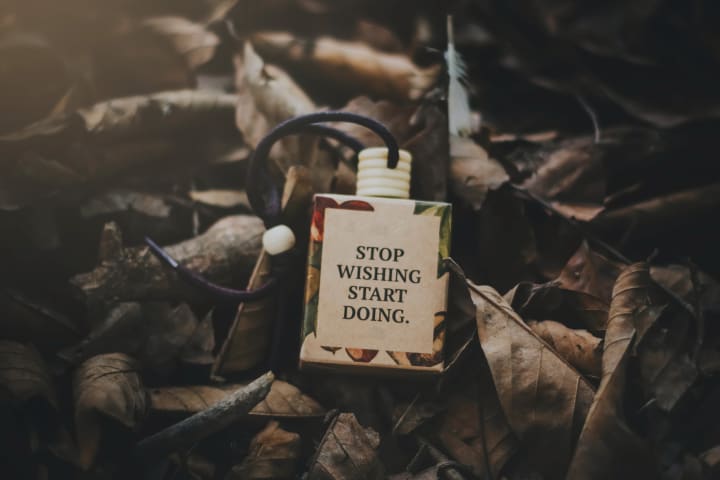From White Lies To Betrayal: Exploring The Reasons For Peoples Dishonesty
Lies exist in various forms and can be classified according to their motive and severity

Dishonesty is a multidimensional and intricate component of human behavior that has existed throughout history. Dishonesty can have far-reaching consequences for people and relationships, ranging from small white lies to outright betrayal. In this article, we will look at the psychology of lying, different types of lies, common reasons for dishonesty, the impact of dishonesty on relationships, how to detect and deal with dishonesty, case studies on betrayal, trust-building strategies, and the role of honesty in personal growth and self-improvement. We may traverse the challenges of trust and move towards a more genuine and authentic life if we understand the reasons behind people’s dishonesty.
The Psychology of Lying
There are many psychological factors that have an impact on the complex habit of lying. One of the most common reasons people lie is to shield themselves or others from harm. This drive for self-preservation is profoundly ingrained in our evolutionary past. Additionally, a desire to avoid punishment or receive rewards might be the driving force behind lying. People frequently lie in order to preserve a favorable self-image or to improve their social standing. Fear of being judged and rejected can also contribute to dishonesty. Understanding the psychological causes of lying can assist us in empathizing with others and making sense of their actions.
Various types of lies
Lies exist in various forms and can be classified according to their motive and severity. White lies are frequently seen as harmless and are told in order to save someone’s feelings or prevent unneeded conflict. These lies are frequently employed in social contexts and might range from complimenting someone on their appearance to pretending to like a present. Even seemingly harmless lies, however, can have unintended repercussions. Omission, exaggeration, and fabrication are examples of falsehoods. Exaggeration entails inflating or embellishing the truth, whereas omission happens when crucial information is purposely suppressed. Fabrication is the deliberate production of completely untrue information. Understanding the many forms of lying can help us spot deception and negotiate the challenges of honesty.
Common causes of dishonesty
There are numerous causes of dishonesty. In some instances, people may lie in order to avoid punishment or bad repercussions. Fear of being judged or rejected can also motivate someone to be dishonest. Another prevalent cause of dishonesty is the need to protect oneself or others from danger. Furthermore, people may lie in order to achieve personal benefits or manipulate others for their own gain. In some cases, cultural norms and expectations may even encourage deception. We can have a better knowledge of human behavior and strive for more real interactions if we recognize these typical causes of dishonesty.
The consequences of dishonesty in relationships
Dishonesty can destroy relationships by eroding trust and inflicting emotional distress. When one person lies to another, the foundation of trust on which the relationship is formed is undermined. Trust is an essential component of successful and fulfilling relationships, and once damaged, it can be difficult to repair. Dishonesty can have a wide range of consequences, from tiny breaches of trust to severe betrayal. Even minor lies can collect and cause a breakdown in communication and intimacy. To create healthy relationships, it is critical to understand the negative impacts of dishonesty and aim toward open and honest communication.
How to Spot and Deal with Dishonesty
Detecting dishonesty can be difficult because good liars can be convincing while concealing their genuine intentions. However, there are some indicators and procedures that can assist in detecting dishonesty. Avoiding eye contact, fidgeting, or using inconsistent body language can all be signs of deception. Red flags might also be verbal signs such as contradictory remarks or excessive defensiveness. It is critical to handle the situation with empathy and openness, allowing for an open and honest discussion. When dealing with dishonesty, it is critical to approach the problem directly but without judgment or aggression. In order to navigate the aftermath of dishonesty and regain trust, effective communication, active listening, and setting boundaries are essential.
Examples of treachery
Betrayal is a serious form of dishonesty that can have far-reaching and long-term consequences for individuals and relationships. Examining betrayal case studies might provide insight into the complicated dynamics of trust and dishonesty. One such case study depicts a tight connection that fell apart after one of the friends found that the other was spreading false tales. The treachery shattered the trust that had been formed through years of friendship, resulting in the relationship’s total dissolution. Another case study looks at a romantic relationship where one spouse discovers the other is having an affair. The betrayal not only caused enormous pain, but also called into question the relationship’s core. These case studies emphasize the devastation that betrayal can cause and the significance of honesty in establishing successful relationships.

Trust-building strategies
Rebuilding trust following dishonesty or betrayal is a difficult but important task. Open and honest communication is one of the most important tactics for establishing trust. Making the discourse safe allows both participants to share their emotions and worries. Transparency and consistency in acts and words are required in order to demonstrate sincerity. Empathy, compassion, and genuine contrition can all help to repair trust. Setting clear expectations and boundaries can also help establish a solid basis for trust. It is critical to understand that restoring trust requires time and patience and that both parties must be committed to the process.
The importance of honesty in personal development and self-improvement
Honesty is essential for personal development and self-improvement. Being truthful with ourselves enables us to discover our own strengths and limitations, allowing us to grow and make positive adjustments. Self-deception and dishonesty can stymie personal growth and keep us from realizing our greatest potential. Accepting honesty allows us to form genuine connections with others and establish lasting relationships. It also encourages self-awareness and acceptance, which leads to a higher sense of fulfillment and contentment. Honesty is a strong driver for personal growth and transformation, as well as a moral virtue.
Conclusion: The value of truth in our life
Dishonesty has far-reaching implications that can affect people and relationships, ranging from white lies to betrayal. Understanding the psychology of lying, recognizing the various sorts of lies, and being aware of the common motivations for dishonesty can assist us in navigating the intricacies of trust. We can mend connections and develop an honest culture by identifying and dealing with dishonesty with empathy and open communication. Honesty is important not only for successful relationships but also for personal growth and self-improvement. Embracing honesty enables us to live more true and meaningful lives, building genuine connections with others and, as a result, a higher sense of satisfaction and fulfillment.
If you have experienced dishonesty or betrayal in your relationships, remember that rebuilding trust takes time and effort. Seek support from loved ones or professional counselors who can guide you through the process. And most importantly, always strive to be honest with yourself and others, as honesty is the foundation for healthy relationships and personal growth.
About the Creator
Abby blasius
I am a passionate content creator with a strong focus on health and wellness. While my educational background lies in a Bachelor of Accounting and Finance, it is my innate desire to help people feel good about themselves in mind, body&soul






Comments
There are no comments for this story
Be the first to respond and start the conversation.